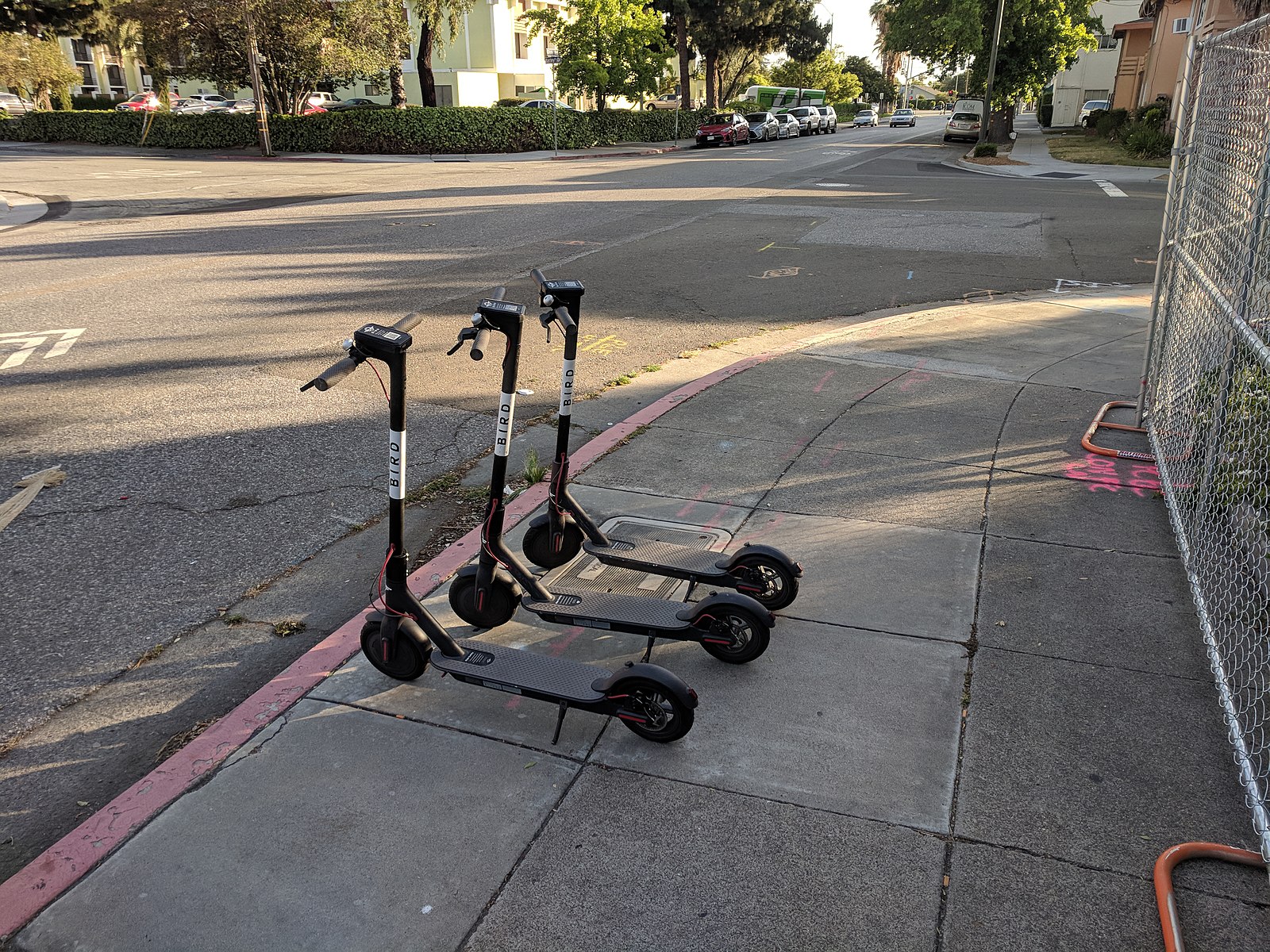A fissure has developed between advocacy groups for safe transportation over California Assembly Bill 371 Shared Mobility Devices: Insurance and Tracking (A.B. 371). While portions of the bill have near universal support, one provision that increases insurance requirements for scooter companies has proven more controversial. A.B. 371 was introduced by Assembly Member Reginald Jones-Sawyer of South Los Angeles and coauthored by Assembly Members Eloise Reyes (San Bernadino), Marie Waldron (Escondido), and Buffy Wicks (Berkeley).
It should be noted that proponents of the legislation are mostly concerned about the impact scooters have on people using the sidewalk. Rather than address why scooter users choose to ride on the sidewalk over the road, because they find the roads to be scary, they are focusing on making sure those injured in a scooter-caused crash have the chance to be compensated with large settlements.
A.B. 371 is sponsored by the California Council for the Blind. The group wants to make it easier for people who are blind to know who to sue if they are injured by a scooter, whether that scooter is being ridden or been parked in the way, as well as to increase the amount of settlements. While this would increase the cost to companies, the hope is that it would also encourage companies to take safety more seriously by placing the onus to create a safe system on companies and not the cities and counties where scooters and bikes are being rented.
It is supported by other disability rights groups, some pedestrian safety groups and the Consumer Attorneys of California. It is opposed by shared mobility service providers, cycling organizations, and other smart growth organizations.
Statistics compiled by the University of California San Francisco (UCSF) showed a surge in crashes and injuries between 2014 and 2018, but that's to be expected given the massive increase in the number of available scooters during the Scooter Summer of 2017. Solid statistics for how many pedestrians are injured in a crash or by tripping over a parked scooter are not reliable and sometimes contradict each other because most people involved in scooter crashes are assumed to not go to the emergency room unless the crash is severe.
A.B. 371 would make major changes to the laws regarding micromobility companies.
First, it would require scooters to have contact information for the owner in braille so that if people who are visually impaired trip over them they know who to contact. This provision is near-universally supported and would likely quickly become law on its own.
If passed, A.B. 371 would also expand already required insurance to include third-party liability coverage of a minimum of $100,000 individually or $500,000 in aggregate, in case of negligence by the user. Compared to other states, California already has high insurance requirements for bike-share and scooter-share programs. Operators' existing insurance covers up to $1 million in liability for third-party bodily injury and property damage. According to the Los Angeles County Bicycle Coalition, "the minimum insurance requirements for personal automobiles is $15K per person/$30K per accident."
In other words, bike-share and scooter companies are already required to carry higher insurance coverage than drivers of automobiles - a point against the bill raised by advocacy groups opposing it. They say these insurance costs would drive bike- and scooter-share companies out of business.
What those costs would be to the micromobility providers can be estimated, but not guaranteed, because no insurance company offers insurance at those rates to bike and scooter share companies. While it is not uncommon for companies to not offer policies above state requirements for this kind of insurance, it does exemplify the high burden A.B. 371 would place on the industry.
Without firm numbers, advocates are left to debate whether or not the cost of these increased measures is appropriate or a fatal blow to the industry. A.B. 371 has also changed the debate from "how do we make streets safer for scooters and bicycles?" to "how do we make sure those injured in crashes are properly compensated?"
"This bill imposes unprecedented insurance requirements on shared mobility operators that would effectively end bike- and scooter-sharing systems in California," wrote the San Diego Bicycle Coalition in an email to members. "It would require system operators to carry insurance coverage for damages caused entirely by the rider. Such coverage is not currently available and, if it were, would be cost-prohibitive."
But maybe that's the real point: maybe supporters are hoping that if passed, A.B. 371 would end the micromobility industry in California.
In a letter supporting the bill, Safe Walkways, a San Diego based advocacy group, basically shrugs its shoulders at such an outcome, claiming that if scooters are safe enough to be on the road, the cost increase would be small.
"We believe the cost of such coverage to be nominal because if it were not, the implication would be that the risk of injury of pedestrians or damage to property would be so high as to bring into question the safety of the devices as a mode of transportation and whether they should be allowed to be used on the streets of California," Safe Walkways writes.
A quick review of Safe Walkways shows the group is focused nearly exclusively on scooters - which they perceive as an under-regulated industry - and the threat that they pose to pedestrians. According to other local advocates, the group is sincere in its efforts to create safe spaces for pedestrians and not an astroturf group, even if they do disagree on A.B. 371.
"Circulate San Diego recognizes there can be a tension between micromobility options and uncluttered sidewalks, which is why we've supported reasonable regulations of the scooter- and bike-share industries," said Colin Parent, the executive director of Circulate San Diego, in a phone interview last week.
A.B. 371 is expected to be heard at the first meeting of the Assembly Privacy & Consumer Protection Committee on April 8.






